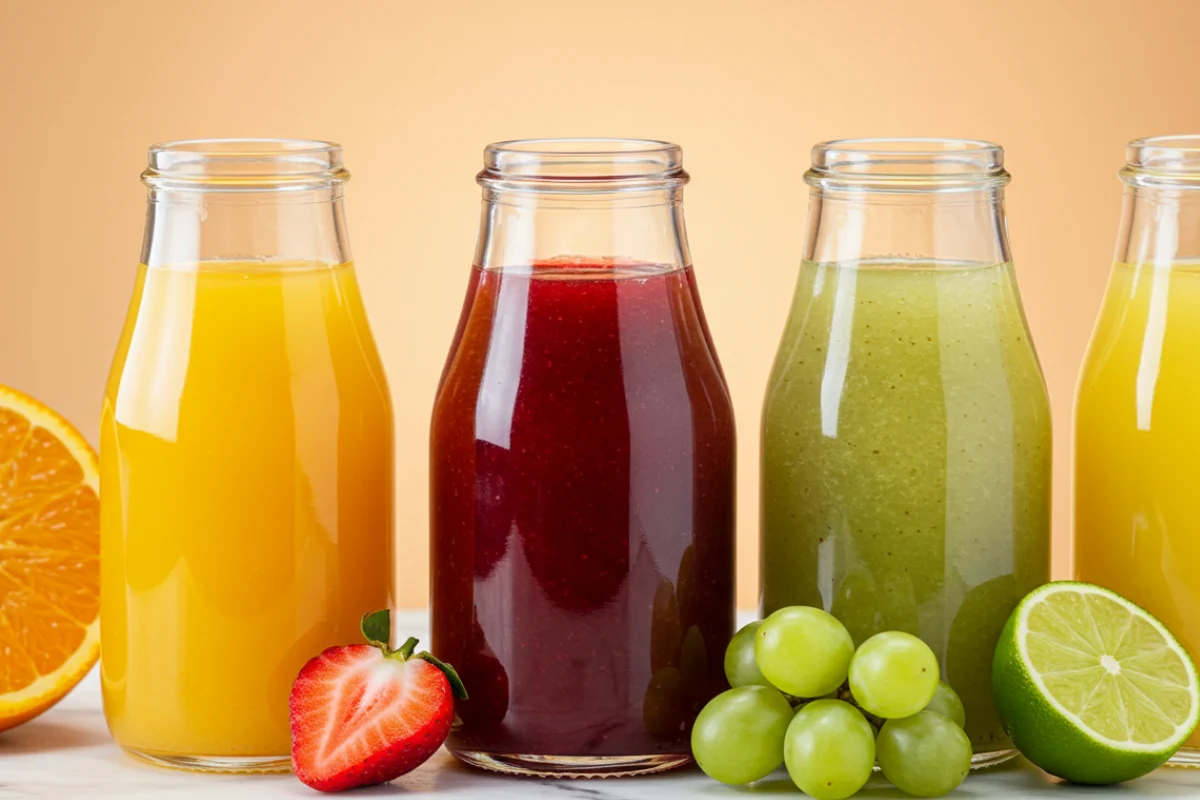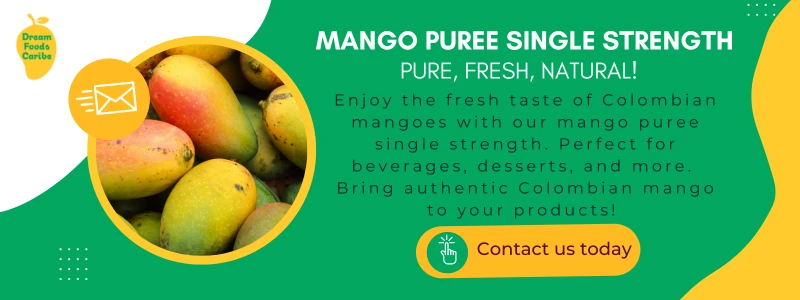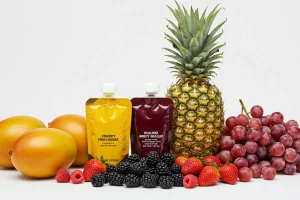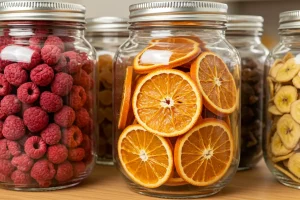The growing interest in food products of natural origin is one of the leading trends in industry. Meeting this consumer demand has become a central goal for producers. Fruit concentrates stand out as a valuable and practical ingredient for creating foods that captivate consumers while offering tangible benefits to manufacturers. Find out everything you need to know about these ingredients here.
The role of fruits in the food industry
Fruits are among the most beloved flavors in the food industry. They are present in almost every product category, from dairy and snacks to beverages and desserts. They also appear across various consumer trends. For example, there is a growing interest in exotic fruits, Caribbean fruits, or tropical fruits in general. These flavors create experiences that delight the senses.
Additionally, fruits remain essential ingredients in the production of natural, additive-free foods. Today, popular fruits include classics like orange and cherry, along with bolder choices like yuzu, pitahaya, and pink grapefruit.
Thus, the use of different types of fruits in food production calls for effective and convenient ingredients. This fact makes fruit concentrates an ideal choice.
Fruit concentrates: what you need to know
This type of concentrate is made by removing water from the fruit pulp or juice through a process of evaporation. The result is a dense and shelf-stable product. It retains the natural flavor, sweetness, color, and nutritional properties of the original fruit. It requires less volume and has a longer shelf life than fresh fruit. For that reason, it is a highly efficient and versatile ingredient in food manufacturing.
These concentrates can be derived from a wide variety of fruits. From standard options like apples, oranges, and grapes, to more exotic choices like mangoes, passion fruits, or guavas. In industrial settings, the typical production process involves several key steps. For example (OG Analysis, 2025):
- Selection and preparation of the fruit. Experts select only high-quality fruits. They thoroughly wash, peel, and chop them. They remove any seeds, pits, or inedible parts to ensure purity and consistency.
- Extraction of the pulp or juice. Also, they extract the pulp or juice through mechanical processes such as crushing, pressing, or grinding to release the juice or pulp from the fruit tissue.
- Clarification. The extracted liquid may undergo filtration or centrifugation to remove solid residues and impurities, resulting in a clearer, more stable product.
- Concentration. Finally, they heat the clarified juice under vacuum conditions to remove a significant portion of its water content. This process produces a thick, viscous concentrate that can be stored or transported more easily, without compromising taste or nutritional value.
Benefits of using fruit concentrates
This ingredient offers multiple advantages to food producers. First, it provides flavor, sweetness, and nutritional value. Therefore, it helps eliminate artificial additives in food production, responding to consumer demand for natural products, which are often perceived as healthier and have a clean label.
Additionally, these concentrates provide benefits similar to fresh fruit, but with added convenience. They are easier to transport and store, with a lower risk of spoilage. This brings logistical, cost, and safety advantages.
They also allow producers to maintain a consistent product offering year-round. Since concentrates have a longer shelf life, they remain available even when made from seasonal fruits.
Fruit concentrates and industry trends
Fruit concentrates are emerging as a powerful tool to tap into various food industry trends.
For instance, today’s consumers are increasingly attentive to the nutritional value of their food choices. They seek natural and nutrient-rich alternatives to artificial sweeteners and flavors. Fruit extracts, for example, help reduce a product’s glycemic load. Additionally, they bring the vitamins, minerals, and antioxidants of fruits into a wide array of everyday foods.
In particular, this ingredient can be a direct pathway to success in the functional foods segment, as it delivers specific health benefits beyond basic nutrition.
As such, fruit extracts serve as a dense source of natural nutrients that can be used in targeted ways to achieve specific outcomes. For instance, citrus concentrates can aid digestion and improve hydration (Global Industry Analysts, 2025).
Dream Foods Caribe: the highest quality standards
In the competitive food industry, choosing the right ingredients is key to both success and customer satisfaction. That’s why at Dream Foods Caribe, we take pride in being your strategic partner, offering premium fruit concentrates that serve as the foundation for developing natural, safe, and highly effective products. Our commitment to excellence is evident at every stage, from selecting the finest fruits to applying cutting-edge technologies.
Visit our website to learn more about our offerings, production processes, and the variety of fruits we use to deliver the best flavor. Whether you’re looking to innovate your product line, respond to emerging consumer trends, or simply elevate the quality of your recipes, our premium fruit extracts are the ideal solution. Let’s create delicious, natural, and memorable food products using fruit concentrates, together.
References
- Global Industry Analysts. (2025). Fruit Concentrates – Global Strategic Business Report. Research and Markets.
- OG Analysis. (2025). 2025 Fruit Concentrate Puree Market Report – Industry Size, Competition, Trends and Growth Opportunities by Region – Forecast by Types and Applications (2024-2032). Research and Markets.







